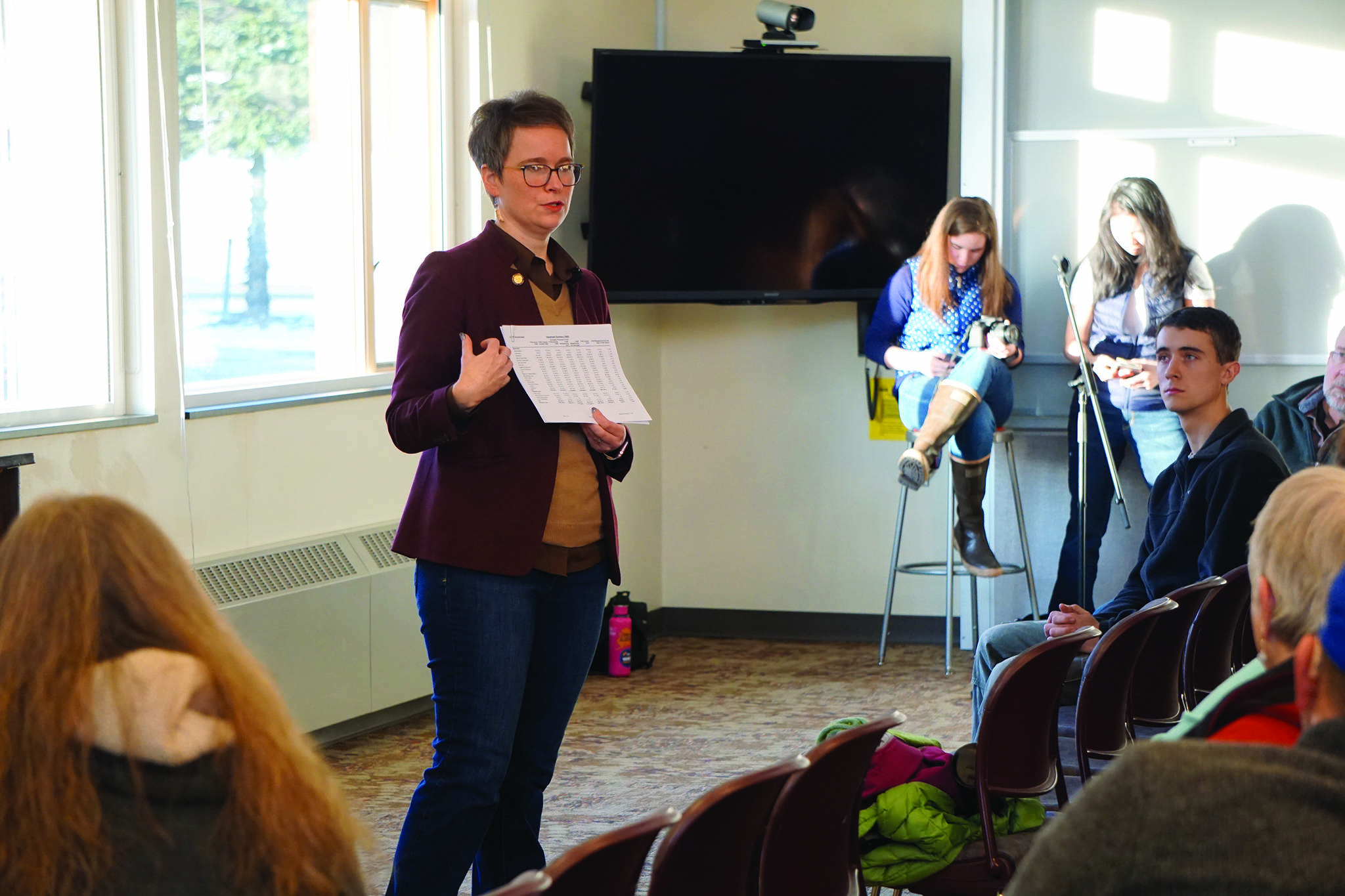Backed by 17 co-sponsors, Rep. Sarah Vance, R-Homer, on Monday introduced House Bill 302, a bill that would prohibit abortion if a health care provider detects a fetal heartbeat in a pregnant woman.
The 18 representatives supporting the bill include five members of the House Majority, and if all commit to the legislation, it would need only three more votes to pass the House of Representatives.
“Hearing the heartbeats of my own babies in the womb helped me to comprehend the validity of unborn life — life that our laws should recognize and protect,” Vance said in a press release by the Alaska House Republicans announcing the bill. “HB 302 brings us closer to that goal.”
HB 302 follows similar bills modeled after federal and other state legislation, said Zach Freeman, press secretary for the Alaska House Republicans, in a press release. Titled “An act prohibiting abortion after detection of fetal cardiac activity or fetal heart contractions,” HB 302 says “a person may not knowingly perform an abortion after a health care provider detects a fetal heartbeat unless the abortion is medically necessary.” It defines “fetal heartbeat” as “cardiac activity or the steady and repetitive rhythmic contraction of the fetal heart within the gestational sac.”
“It’s estimated that a fetal heartbeat can be detected at six to eight weeks,” Vance said on Tuesday.
In effect, that means HB 302 would prohibit all abortions. According to a Cleveland Clinic article, “Fetal Development: Stages of Growth,” fertilization doesn’t occur until about two weeks after a woman’s last menstrual period. The hormone detected in pregnancy tests doesn’t increase to detectable levels until three to four weeks after the first day of a woman’s last period of 28 days. An embryo also doesn’t become a fetus until the eighth week of pregnancy, according to the Cleveland Clinic article.
Most women don’t find out they’re pregnant until eight weeks into their pregnancy, said Xochitl Lopez-Ayala of Homer, a board member of the Northwest Abortion Access Fund and a reproductive rights advocate.
“They’re basically designed as propaganda to ban an abortion,” Lopez-Ayala said of bills like HB 302. “They’re trying to use terms that would resonate with people more. Now they think they’re ‘killing a baby’ when really they’re being in control of a pregnancy.”
Vance said she believes life begins at conception. Using the standard of a heartbeat is similar to how other stages of life are determined, she said.
“We determine, are they alive? We check for the heartbeat. Are they dead? We check for the heartbeat,” she said. “… This defines fetal heartbeat so it’s clear in statute.”
HB 302 would not require abortion providers to monitor or check for a fetal heartbeat. When asked if the bill could be amended to require that, Vance said, “It hasn’t come up yet. This was first introduced yesterday (Feb. 24). That’s something we would have to get legal insight on. That may have to be determined by the courts.”
In the press release, Vance thanked and acknowledged the support of the other 17 sponsors, all of them Republicans.
“This widespread support underlines the unified effort to protect our most vulnerable,” she said in the press release. “As a mother of four children, I am proud to be working with so many lawmakers who place value on the heartbeat of pre-born Alaskans.”
Vance said she wanted to keep the bill “as clean and simple as possible so it could get widespread support and represent what I feel most Alaskans want. We can work the details out in the legislative process.”
After its introduction on Monday, HB 302 was moved to the House Health and Social Services Committee. For more information and to track the bill, visit http://www.akleg.gov.
Reach Michael Armstrong at marmstrong@homernews.com.


